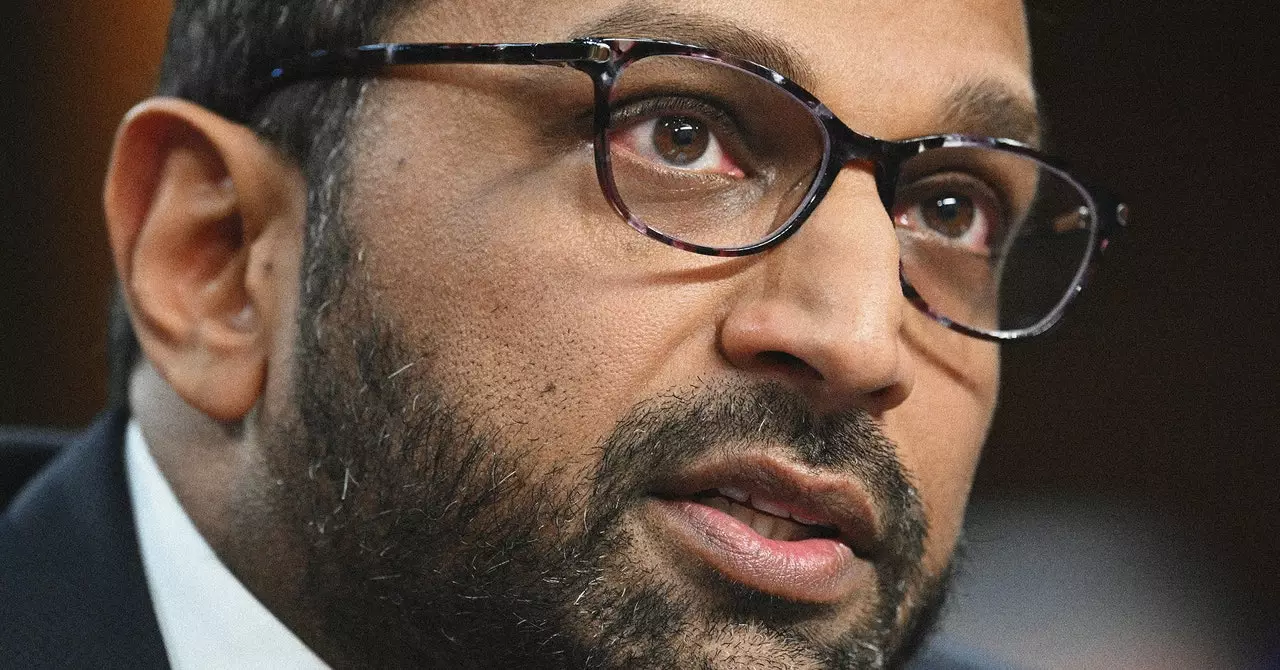In a politically charged environment where corporate interests often intertwine with governmental roles, the revelation that Kash Patel, President Donald Trump’s nominee for the head of the FBI, holds a substantial financial stake in Shein raises significant concerns. This article delves into Patel’s connections with the controversial fast-fashion company and explores the broader implications for integrity within federal leadership.
Kash Patel, whose nomination has generated a mix of anticipation and apprehension, possesses stocks valued between $1 million and $5 million in Elite Depot Ltd., the parent company of Shein. This linkage, surface-level yet profound, reveals not just a financial entanglement but also the potential for conflicts of interest that could shadow his leadership should he assume the role of FBI director.
What adds complexity to this situation is the timing of Patel’s consultancy role. Just one month prior to his association with Shein, the company enlisted the services of a lobbying firm where Pam Bondi, the newly confirmed U.S. Attorney General, worked. Such a timeline invites scrutiny, suggesting a possible orchestration of interests that places Patel at a nexus point between corporate lobbying and law enforcement.
The nature of Patel’s financial disclosure is particularly telling. Despite outlining his stock ownership, Patel indicated his intention to retain these assets upon ascending to the FBI. While legally permissible, this decision ignites questions regarding ethical governance. Jordan Libowitz from the Citizens for Responsibility and Ethics in Washington emphasizes the “optics” of the situation and advocates for Patel’s divestment or recusal from matters involving Shein.
The FBI, a principal investigative body charged with upholding the law impartially, cannot afford to have its leadership entangled in perceived conflicts. Given Shein’s ongoing controversies surrounding labor practices and business ethics, the alignment of Patel with the company could undermine the Federal Bureau’s credibility and public trust.
Shein’s struggles in the marketplace are well-documented. The company has faced significant allegations regarding unethical business practices, particularly related to labor conditions in its supply chain. Notably, during Patel’s tenure as a consultant, Shein was attempting to gain approval for its Initial Public Offering (IPO). The scrutiny intensified when then-senator Marco Rubio urged the Securities and Exchange Commission to intervene against Shein’s public offering, citing various concerns.
The dichotomy of a nominee wielding influence over law enforcement while navigating ties to a controversial entity like Shein underlines the need for increased transparency and responsibility among public officials. Shein’s attempt to transition to the public sphere while grappling with regulatory scrutiny adds another layer to the discussion on Patel’s role.
Given the imperfections inherent within any political process, transparency and accountability from prospective FBI leaders must take precedence. Kash Patel’s case underscores the necessity for policymakers to set clear standards that demarcate personal financial interests from official duties. The ramifications of failing to do so can reverberate through various societal layers, perpetuating distrust in governmental institutions.
Furthermore, as the FBI continues to navigate challenges to its integrity and mission in an era of heightened scrutiny, the embrace of accountability should not merely be lip service. It should materialize as actionable directives affecting those who hold influential roles.
As the Senate prepares to cast its vote on Kash Patel’s nomination, the deliberation must transcend political affiliations or individual aspirations. Instead, the focus should remain on the implications of his financial entanglements with Shein and their potential impact on the FBI’s function. In an era where corporate influence is increasingly scrutinized, it is essential that individuals in power exemplify ethical standards, ensuring that their personal interests do not eclipse their commitment to the greater good. The stakes are high—not just for Patel, but for the integrity of the institutions they seek to serve.

